Advertisement
Essential Facts About Worms in Dogs Every Pet Owner Should Know
Updated: Nov 11, 2024
Advertisement
Several types of parasitic worms use dogs as their hosts. A parasite relies on a host body for shelter, food, and reproduction. Dog owners are often shocked when healthy pets in clean homes develop worms. However, dogs and puppies can get worms in several ways, even when their owners keep spotless houses. Dogs frequently pick up or ingest parasitic worms without their owners noticing until symptoms of infection appear. Puppies can even get worms before they're born. So, let's explore how these unwelcome guests find their way into our furry friends.
Dogs Sniffing Feces
First off, dogs and puppies often get worms by sniffing another dog's feces. Many species of worms use feces as part of their life cycle. The adult worms lay eggs in the intestines, and those eggs are expelled from the infected dog's body along with feces. The eggs hatch in the feces, and the larvae are incredibly small. When other dogs sniff at piles of feces, they inhale or swallow these tiny larvae. Therefore, it's crucial to prevent your dog from sniffing or eating feces during walks or in the yard. Regularly cleaning up after your dog and discouraging them from investigating unknown droppings can help reduce the risk of infection.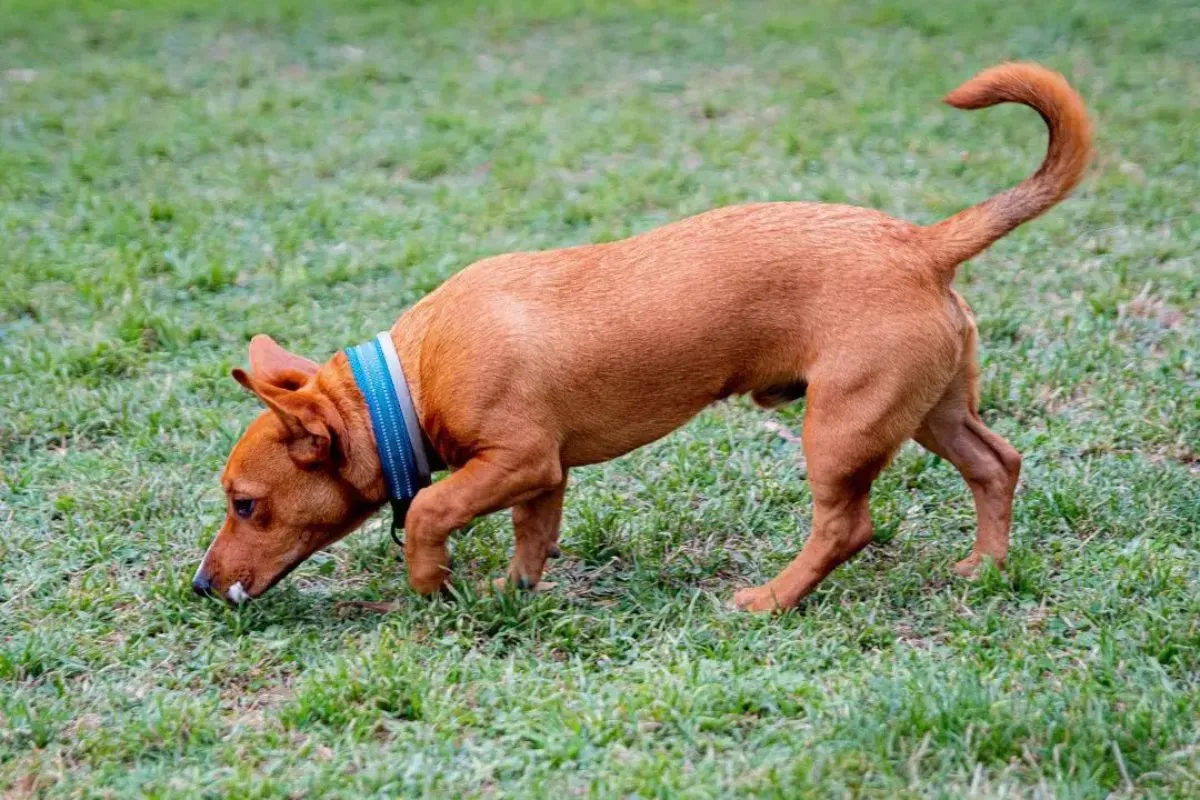
Advertisement
Contact with Other Animals
Moreover, roundworms and other parasites that infect dogs can also infect other animals. A dog can pick up worms from eating small animals or even sniffing at another animal's remains. Many dogs enjoy hunting mice and other rodents. Even if the dog doesn't actually eat the other animal, infection is still possible because worm eggs and larvae are microscopic. So, it's important to supervise your dog during outdoor activities and discourage them from hunting or scavenging. Keeping your yard free of small animal carcasses can also minimize the risk.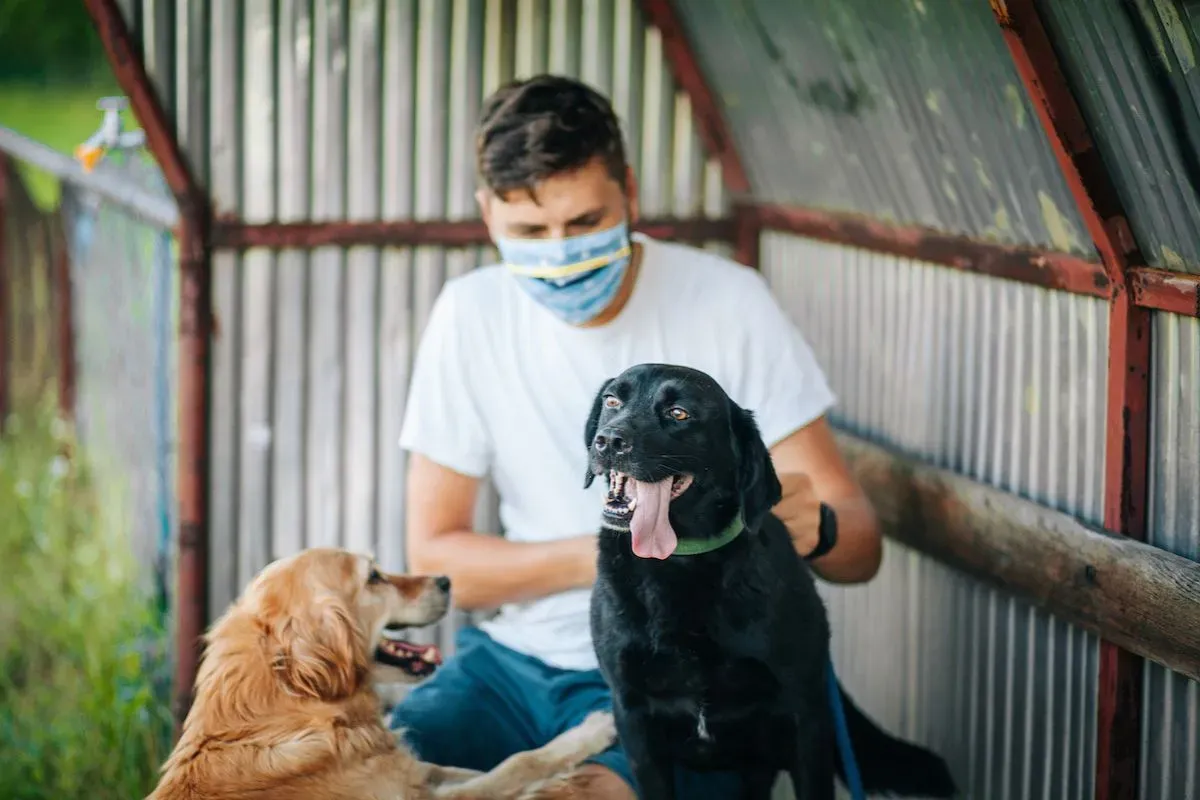
Advertisement
Mosquito Bites
Additionally, mosquitoes carry heartworms, which are very dangerous parasites. Heartworm infestations can be fatal without treatment, and even with treatment, they may cause serious health issues if the worms have spread throughout the dog's body. Heartworms infect the heart and lungs, posing a significant threat to your pet's health. Controlling the mosquito population can be challenging, but veterinarians can provide medications that prevent heartworm infection even if a dog is bitten by an infected mosquito. Therefore, regular heartworm prevention is essential, especially in areas where mosquitoes are prevalent.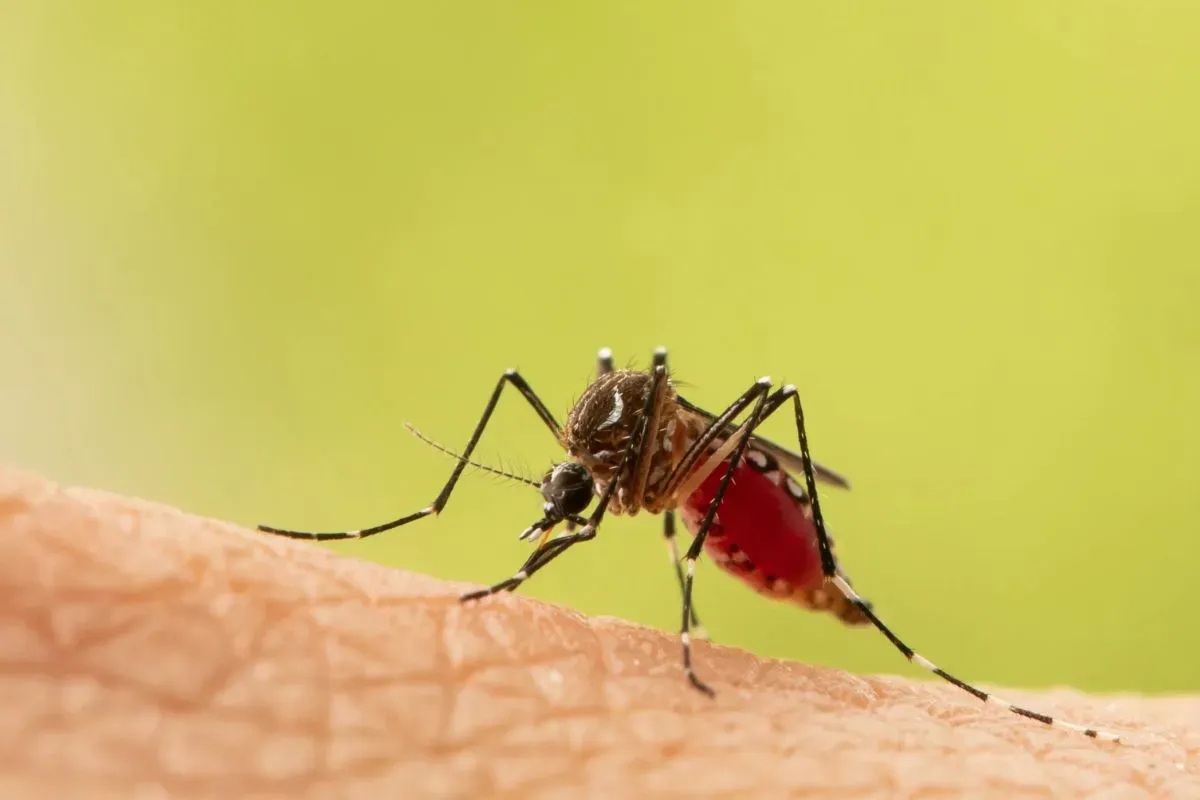
Advertisement
Transmission During Pregnancy
Furthermore, roundworms and several other parasites can infect puppies before birth if their mother is infected. Sometimes, a mother dog that had worms in the past can still pass them on to her puppies. Some types of worms can stay dormant in muscle tissues for years. Pregnancy can reactivate these dormant worms, causing an active infection again. That's why veterinarians recommend deworming all puppies on a set schedule. Early treatment helps prevent the spread of worms and keeps the puppies healthy.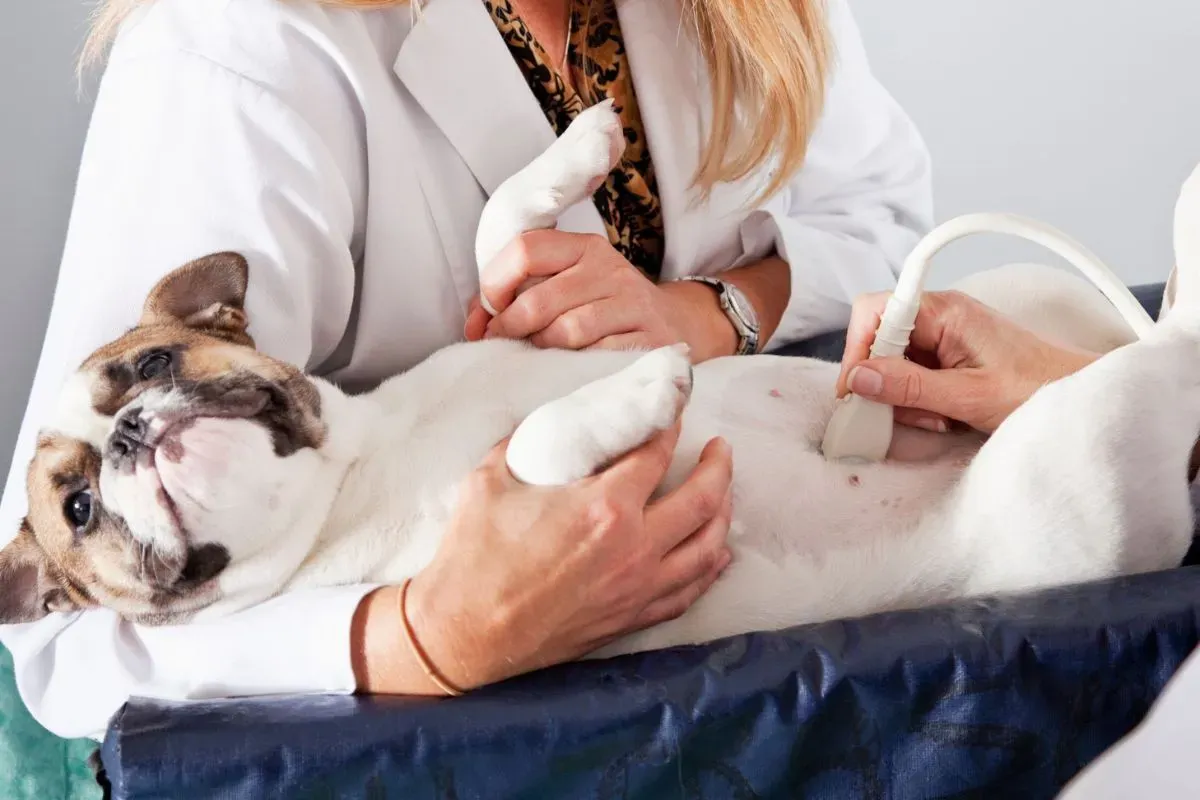
Advertisement
Nursing Puppies
In addition to prenatal transmission, puppies can ingest worms through their mother's milk. The larvae, or even adult worms, ingested during nursing make their way through the puppy's digestive tract into the intestines. If the worms are at an advanced point in their life cycles, they could start producing eggs quickly. The eggs in the puppy's feces can infest bedding and spread to other puppies in the litter or cause reinfection after treatment. Always keep the bedding and area surrounding a mother dog and her babies clean and fresh. Regularly washing bedding and maintaining a hygienic environment can help prevent the spread of worms.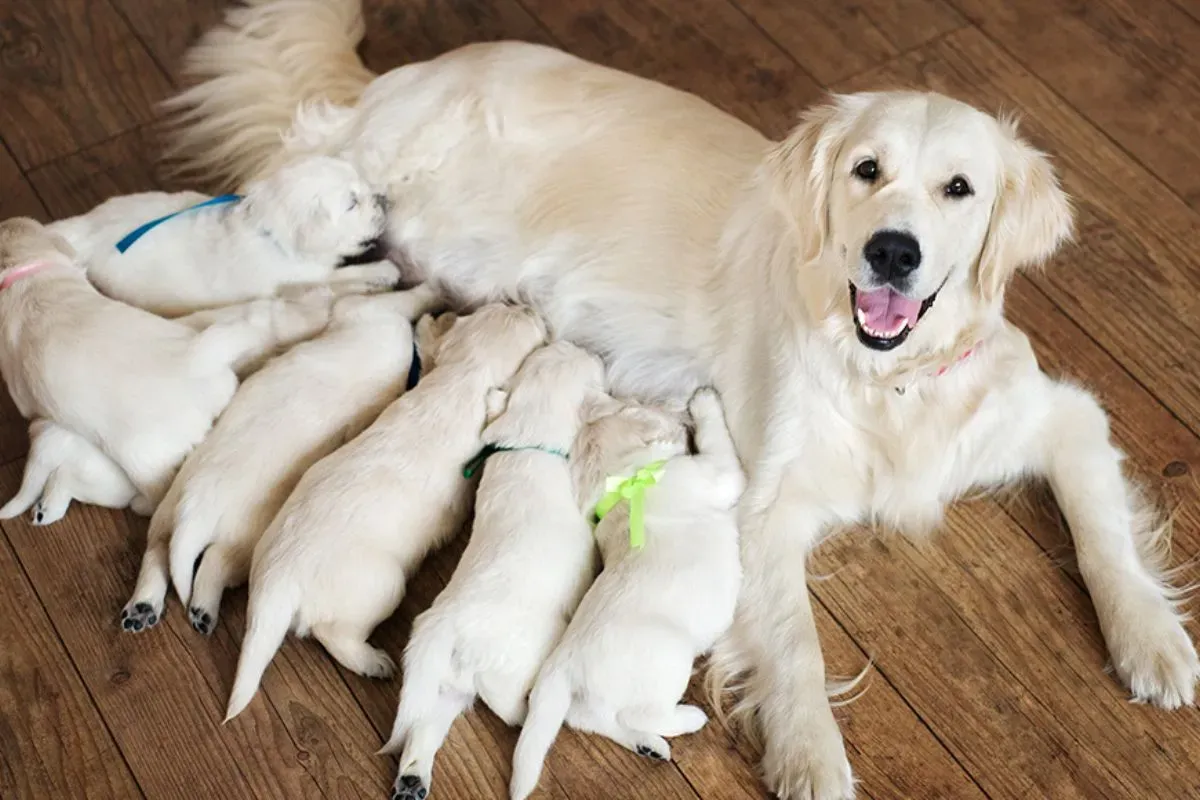
Advertisement
Skin Contact
Most parasitic worms cannot infect a dog simply through skin contact, but hookworms can. Hookworm eggs spread through feces like other worms, but the eggs and larvae can survive for weeks or months in feces and soil. Dogs become infected with hookworm larvae by sniffing around contaminated areas or by grooming their feet. Hookworm larvae can penetrate a dog's skin if the dog lies down on contaminated soil to rest or nap. The risk of hookworms is higher in hot, humid areas. Therefore, keeping your dog away from areas known to be contaminated and maintaining clean resting spots can reduce the risk.
Advertisement
Eating Undercooked Pork
Believe it or not, tapeworms are known to exist in a dormant state in pork. Normally, the dormant worms are not a problem because pork is cooked before it's consumed. The temperatures necessary to thoroughly cook pork are high enough to kill any possible tapeworms. However, dogs can get tapeworms from eating undercooked or raw pork. Some people believe dogs can eat uncooked meat because wild canines like wolves and coyotes eat raw meat. While that's true, wild canines are also at risk of worms and illness. Never feed your dog uncooked or spoiled pork products. Always ensure their food is properly cooked and safe to eat.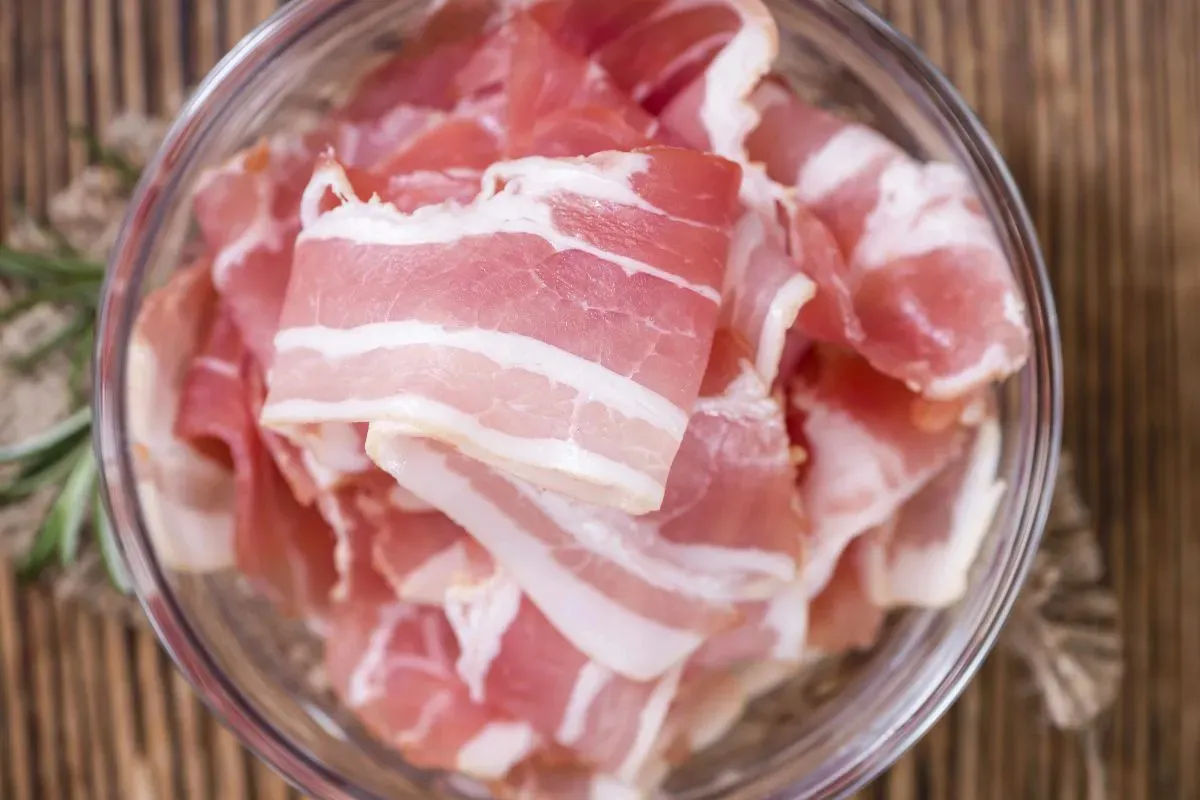
Advertisement
Fleas as Carriers
Another route of infection involves fleas. Some worm species infect dogs through fleas. This usually happens when an animal infected with worms is also infested with fleas. The worm larvae in or around the dog's bedding are ingested by fleas. The larvae aren't digested by the fleas; instead, they remain dormant inside the flea's body until another animal eats the flea. Dogs eat fleas when they bite at their own fur and skin after a flea bite. Therefore, controlling flea infestations is crucial. Regular flea prevention treatments and maintaining a clean environment can help prevent this mode of transmission.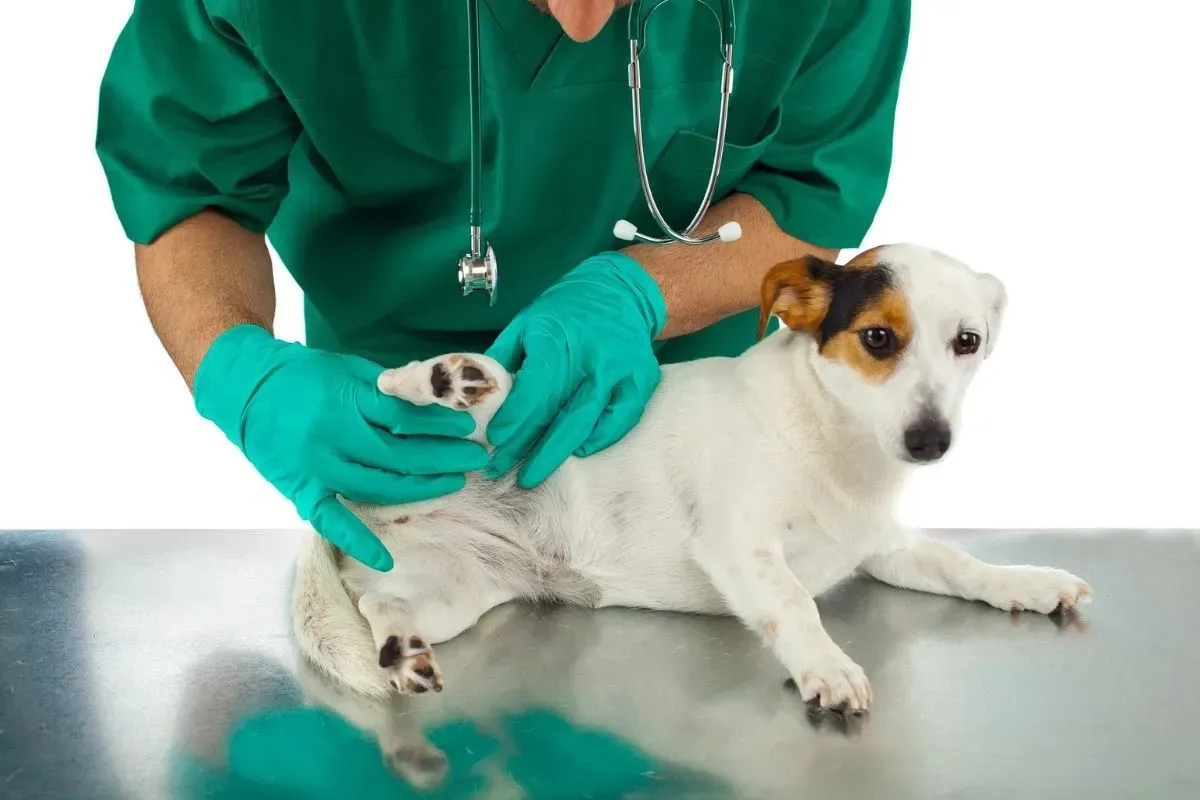
Advertisement
Ingesting Worms While Grooming
Furthermore, dogs can ingest many types of worm eggs or larvae while grooming their paws. Whipworms, in particular, are likely to infect dogs this way. Whipworms infect many animals, including coyotes and wolves. Whipworm eggs and larvae can survive in the soil for almost a year. A dog has a good chance of picking up whipworm eggs and larvae on its feet if any animal in the area is infected. Regularly washing your dog's paws and preventing them from licking dirty paws can help reduce the risk.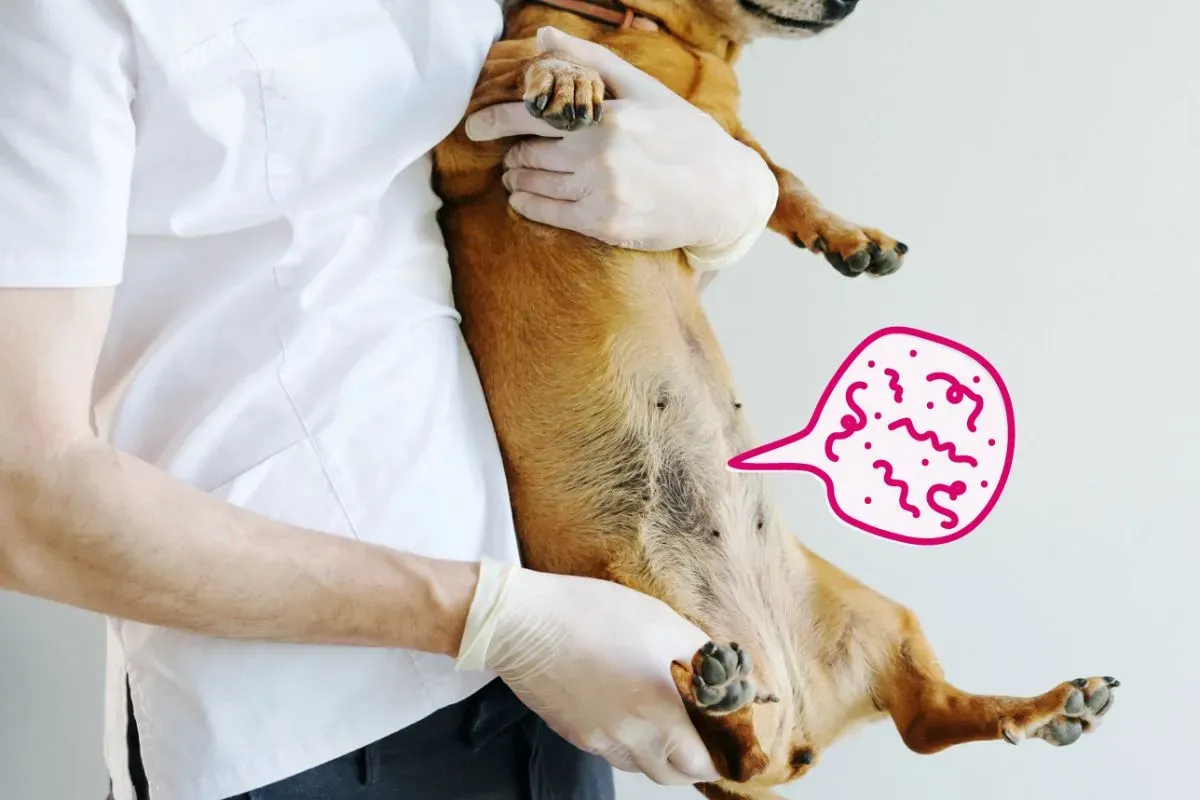
Advertisement
Prevention Measures
All things considered, parasitic worms infect dogs through several avenues. Everything about a parasite is designed to help it find and infect a host, which can make prevention challenging. However, several medications can prevent worm infections instead of just treating them after an infection has occurred. Medications to prevent heartworm are the most commonly known, but your veterinarian can recommend appropriate medications to prevent other types of worms depending on your location and the parasites common in your area. Regular veterinary check-ups, maintaining a clean environment, and following preventive measures can keep your dog healthy and worm-free.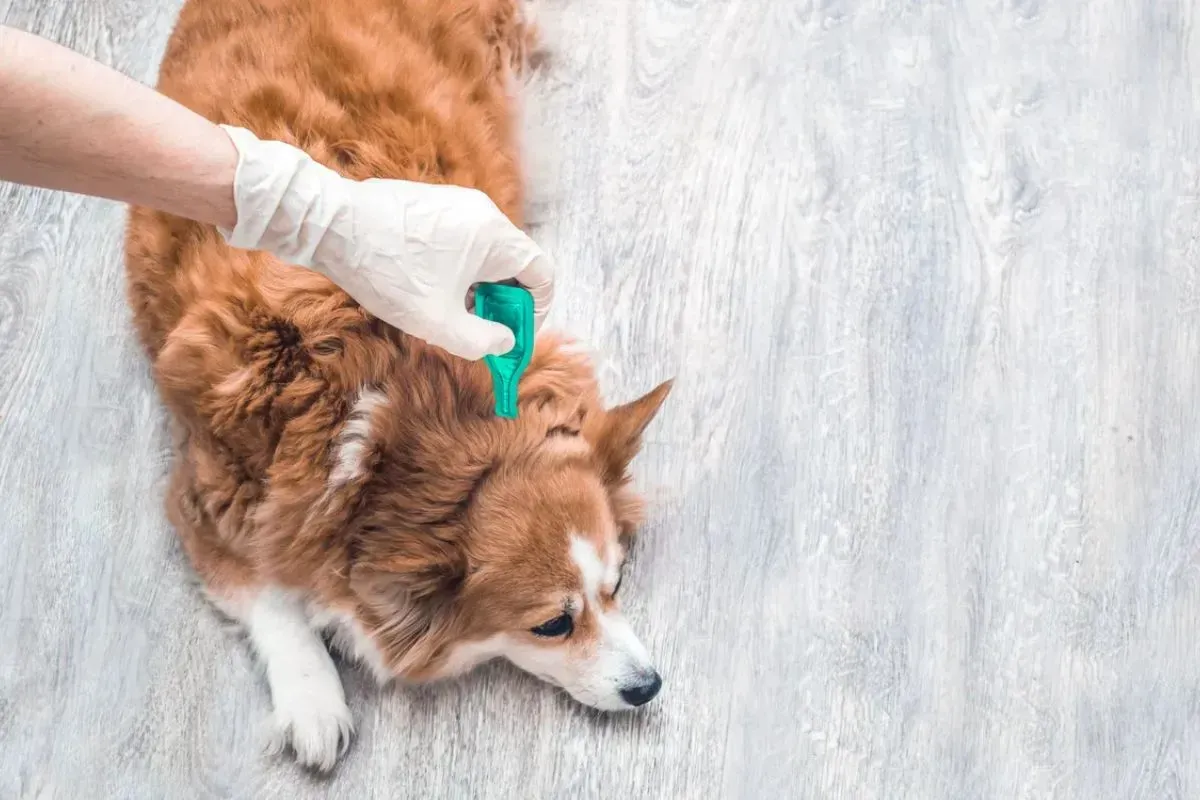
Advertisement
Scroll downfor the Next Article
.png)




